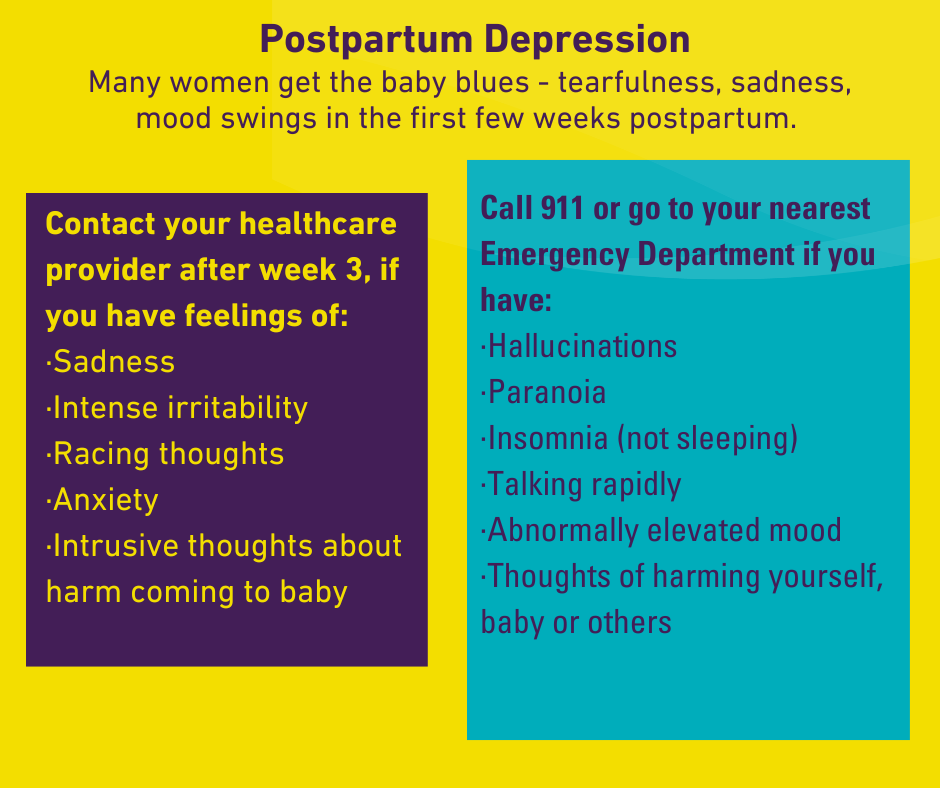
“I was constantly in fear that something was going to happen to my baby. If I wasn’t watching her breathing, she would stop. I couldn’t go for a walk because I was afraid a car would hit me. Just hearing Ellie cry sent me into a panic,” Renita says.
When she found herself bawling in her car, she called Mankato Clinic. The nurse told her she was proud of her for calling and promptly got Renita an appointment with Dr. Anna Steffan, a psychiatrist who specializes in maternal mental health.
Renita was suffering from postpartum depression, anxiety, lack of sleep and obsessive-compulsive disorder.

Ellie and Renita
“Postpartum OCD is relatively common in new mothers suffering from postpartum mood and anxiety disorders and can include distressing thoughts of bad things happening to baby which is distinctive from a desire or compulsion to actually harm baby. A lot of mothers feel ashamed or fearful of admitting to having these thoughts,” Dr. Steffan says.
Postpartum depression can make women feel sad, hopeless and anxious. Sometimes, women feel as if they cannot love or care for their baby.
“It is difficult to care for a newborn at the best of times but doing that task when you are mentally unwell feels, and sometimes is, impossible and can interfere with bonding with your child,” Dr. Steffan explains.
In her first appointment, Renita was guarded because she was afraid her baby would be taken away from her. Dr. Steffan gained Renita’s trust and she opened up about her feelings.
“She helped me feel normal. That I’m not alone. I’m not an outcast,” Renita says.
“I try to normalize how common it is to struggle with mental health in the postpartum period from a physiological and psychological perspective,” Dr. Steffan says. “I share that newborn humans are the most delicate and labor-intensive offspring of any mammal and parents are not meant to do it alone. I encourage new moms and their partners to accept help from friends and family. And don’t feel guilty or inferior about it.”
Treatment is based on the type and severity of symptoms and the patient’s medical and psychiatric history.
“Mainstays of treatment are selective serotonin reuptake inhibitors (SSRIs) which are helpful medications for depression, anxiety and obsessive-compulsive symptoms. New treatments that target the hormonal causes of postpartum depression can be very helpful, but sometimes expensive,” Dr. Steffan says. “Many women worry that medications will harm their baby through exposure to breastmilk. I share what is known about exposure to medications for babies and what is known about the risks of untreated mental illness in mothers for babies.”
Renita’s treatment plan combines talk therapy and medication. She sees Alexis Cote-Sands, MSW, LICSW, for talk therapy every other week, more frequently if needed, and regular medication checks with Dr. Steffan. To prevent separation anxiety for both mom and baby, she works one shift a week. Renita also knows it’s good for her to get out of the house and be with other people.
“Therapy helped so much. I know I can’t be as good of a mom as I want to be if I feel like this,” Renita says. “I’m feeling so great now. Reach out when you need help.”

Meet our providers in the Departments of Psychiatry and Psychology.
